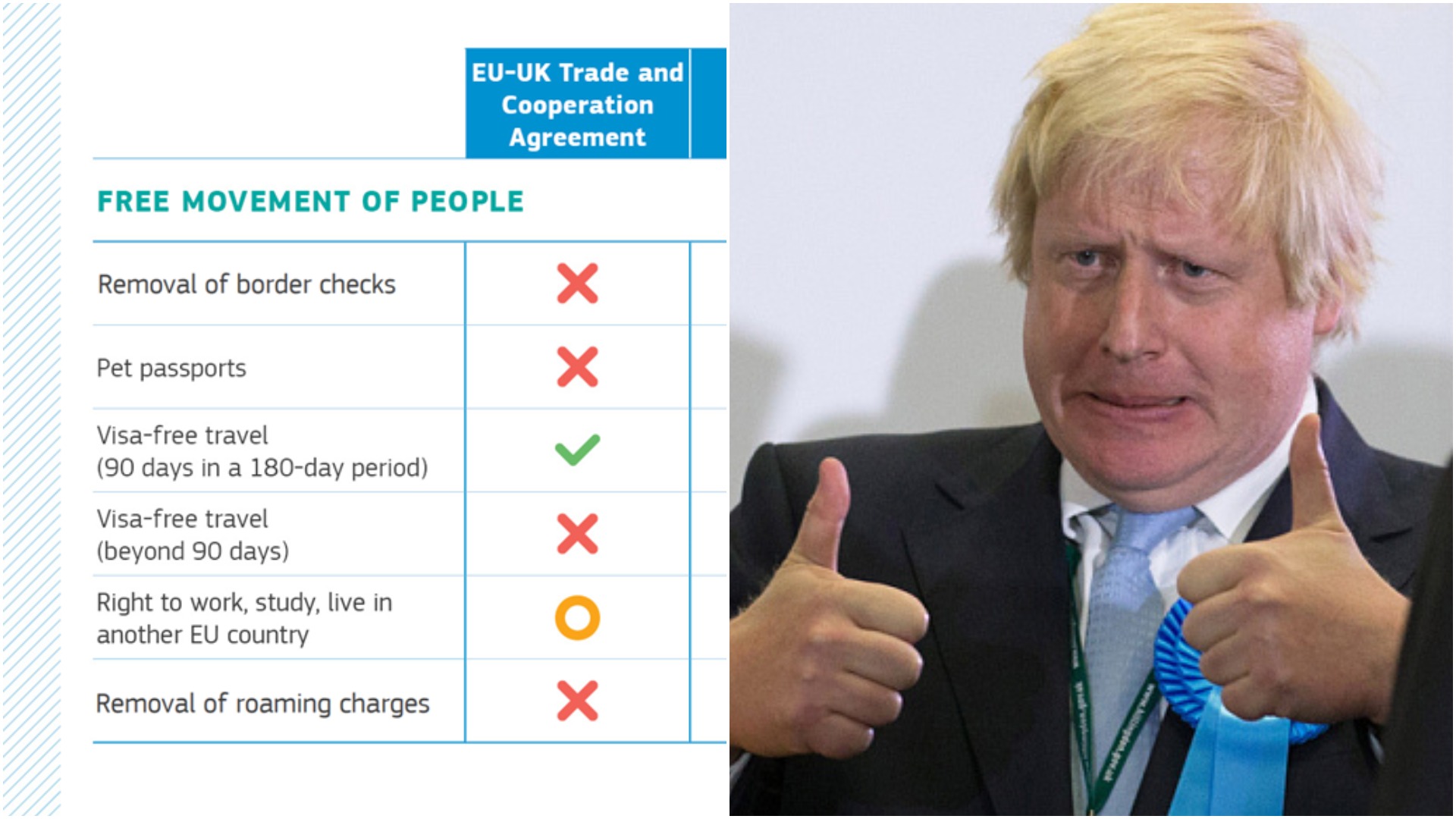BORIS Johnson is rejoicing tonight after finally securing a Brexit deal following days of tense negotiations.
The talks came down to the wire in the run up to Christmas Eve as agreements over fishing rights continued to put a spanner in the works.
But while Britain’s waters will be protected, with a five-year transition period agreed, there have immediately been several key rights lost.
For those with homes in Spain or who live between the UK and the likes of the Costa del Sol, there have been several key losses – other than the big one of course; the right to freely live and work in any EU member state.
90 day stay limit
According to a document released by the EU, the agreement means Brits will no longer be allowed to stay in the union for more than 90 days in a 180 day period without a visa.
That is bad news for UK nationals who spend six consecutive months per year living in their holiday homes on the likes of the Costa del Sol or Costa Blanca in Spain.
Pet passports
There has also been no agreement made on pet passports. It means that any Brit planning to travel to the EU with their furry friend will likely have to have an animal health certificate (AHC).
The document can be prepared by your vet and will be valid for four months, but must be obtained 10 days before travel.
They will be valid for a single trip into the EU, further travel within the union and re-entry into the UK, reported BBC.
Roaming charges
Those with British phone numbers will also feel the pinch while travelling and using their device.
The UK will no longer be included in the EU-wide ban on roaming charges, meaning making calls or using the internet on UK service providers could cost significantly more while visiting the bloc.
Border checks
Brits travelling to the EU will face increased border checks as they become lumped in the ‘third country’ category with the likes of Russia.
That could mean longer queues when boarding your flight or trying to get out of the airport.
No more erasmus
In a blow for British students, the UK will no longer be a part of the Erasmus programme.
The long-running scheme saw university students study abroad as a part of their degrees or studies, allowing them to learn another language while learning about the culture of another member state.









